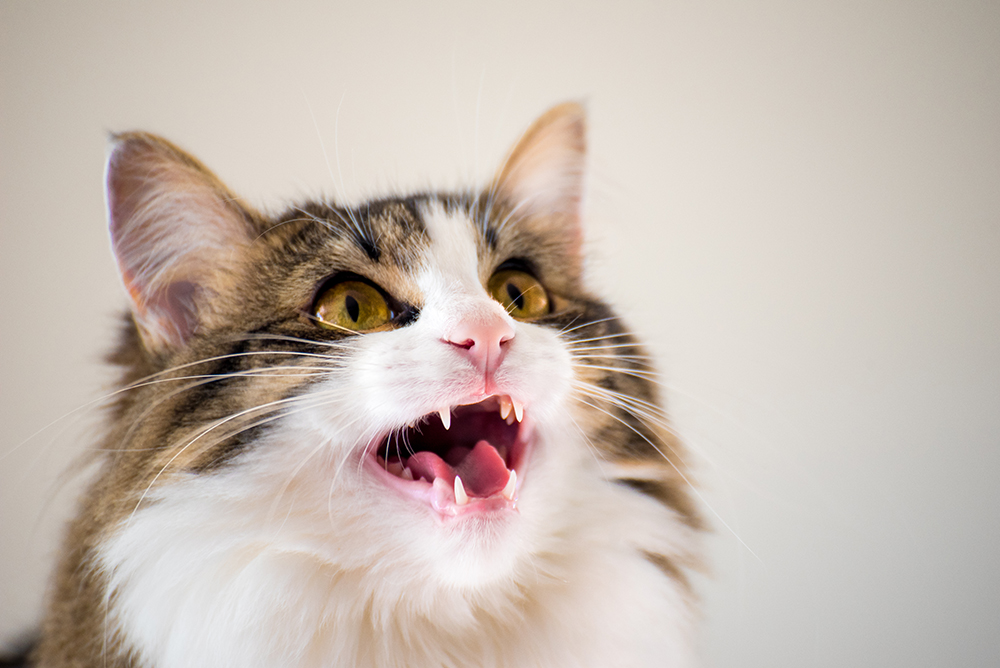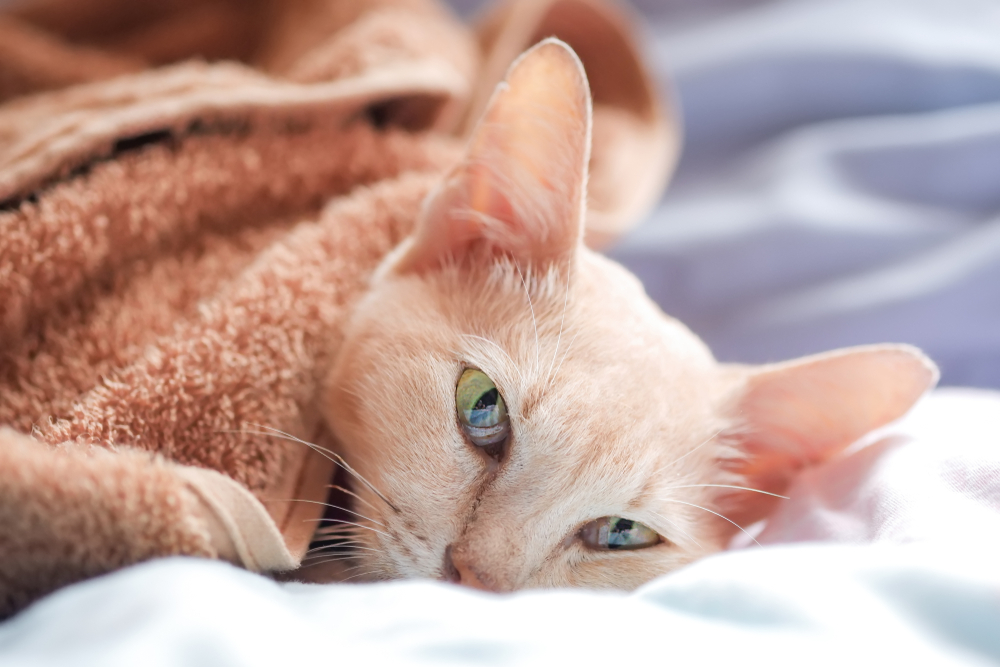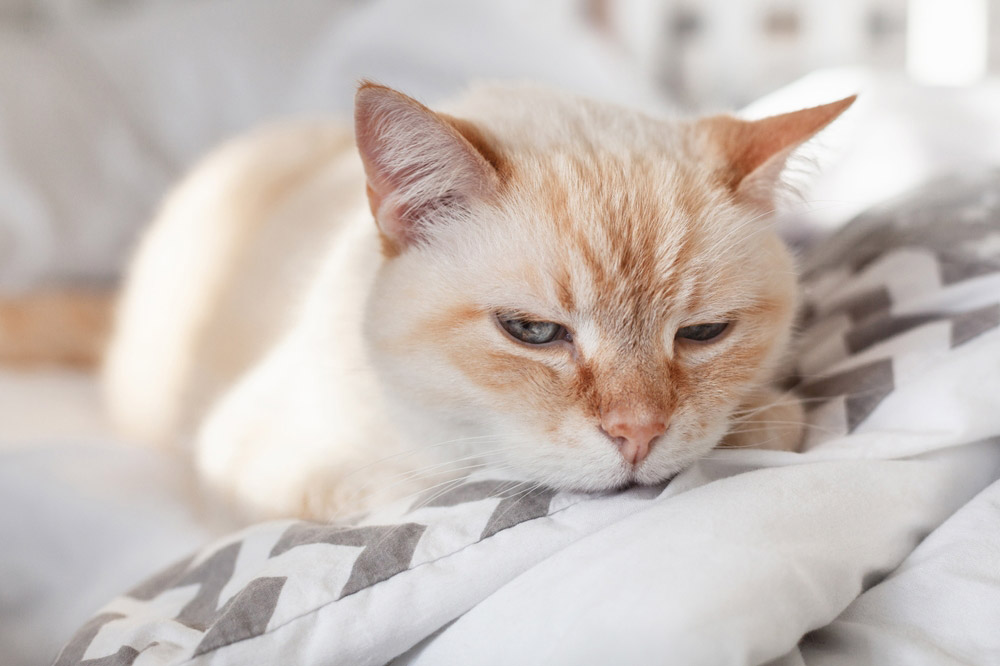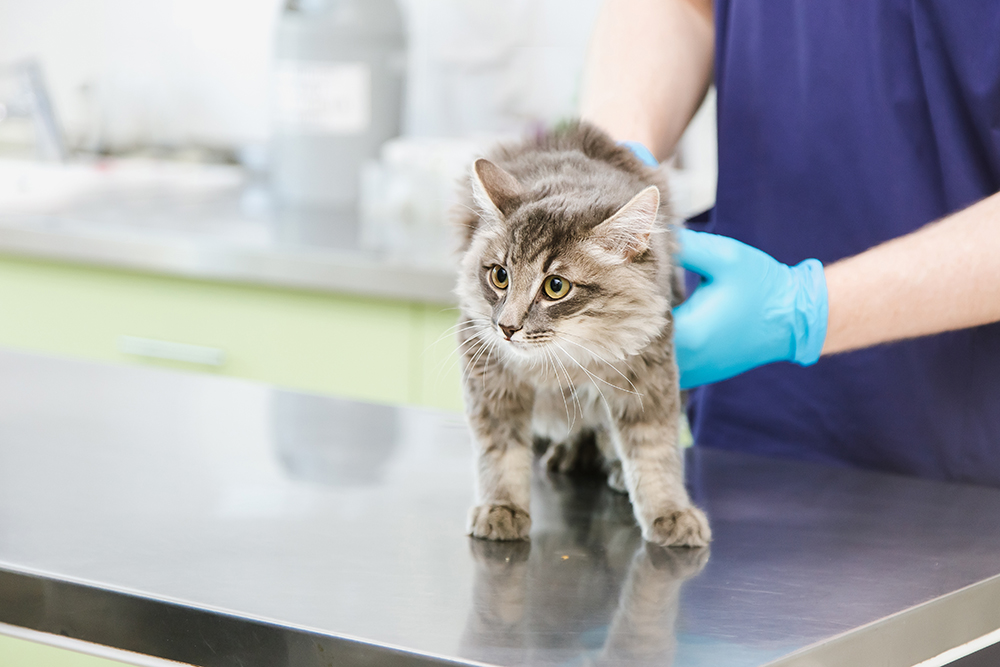Some cats are very vocal and others barely speak at all, but if your cat has lost her voice and starts making raspy or squealing sounds or can’t make any noise at all, it could be a sign that something is wrong.
Laryngitis may be caused by your cat meowing too hard or for too long. It could also be caused by inhaling irritants such as dust, or your cat ingesting something toxic. Although rare, it could also be a sign of some types of cancer. Also, if your cat has been treated for hyperthyroidism, this could also lead to a change in your cat’s voice.
Below we look at some of the most likely reasons why your cat may have lost their voice and what you can do about it.
9 reasons why cats don’t meow
1. Chronic crying
If a cat continues to meow for an extended period of time, either because it is locked in a room or caught by another cat while out, the constant pressure on the larynx and surrounding muscles can cause it to lose its voice.
Your cat’s meowing should improve over time with rest, so make sure to give them plenty of water to speed up the recovery.

2. Upper respiratory tract infection
An upper respiratory tract infection is one of the most likely causes of a change in your cat’s meowing. Upper respiratory tract infections can be caused by viruses, bacteria, or rarely fungi. Infections can also cause a runny nose, sneezing, and coughing. They can also make it difficult to breathe through the nose, leading to noisy breathing or open-mouth breathing.
Infections require veterinary treatment, so take your cat to a veterinary clinic, where your veterinarian can identify the cause and provide effective treatment. Once your cat has recovered, be sure to get their vaccinations up to date if they are not already. Vaccinations help prevent viral upper respiratory tract infections, such as feline herpesvirus and calicivirus.
3. Foreign bodies
While cats may not be as keen on chewing everything as dogs are, they still use their mouths and their sense of taste to explore some objects, and they especially like to pick up and play with small objects, imitating the hunt.
If your cat picks up a small object and tries to swallow it, it can get stuck in their throat. This blockage can cause your cat to change the pitch and volume of their meows, cough, and even choke.
If a foreign object gets stuck in your cat’s throat, it can irritate the throat and cause swelling, and a trip to the vet may be necessary to safely remove the object from your cat’s throat.
4. Throat injury
Throat injuries can occur for a variety of reasons, including fighting or ingesting toxic substances. In general, signs such as pain, swelling, discomfort, and loss of vocalization may be signs of injury around the throat.
A vet can treat the injury so your cat can recover quickly, and they can also check for other problems that may have arisen from the same incident.

5. Toxic Substances
Cats can be exposed to a variety of toxins both inside and outside the home. Some popular houseplants and flowers can be highly toxic to cats. For example, plants that contain insoluble calcium oxalate can cause severe irritation and swelling around the mouth and throat if ingested. Peace lilies and plantains contain these irritating compounds.
Other toxins include chemicals and poisons, and just because you keep your cleaning products stored in the kitchen doesn’t mean your cat won’t find them in the shed or in someone else’s house. If you have a cat, it’s important to wash surfaces after cleaning.
6. Abscess
An abscess is a pocket of pus that can develop anywhere on the body. It most commonly occurs after an injury or accident, and once an abscess forms, it usually grows larger and larger. If your cat has an abscess in or near their throat, it can block their airway.
Not only will this prevent you from hearing the meows, but it may also prevent your cat from breathing freely. The abscess may need to be drained, which can be difficult if it is in the throat.
7. Polyps
Polyps are small, non-cancerous lumps that can form anywhere, including in the back of the throat. Although these lumps are benign, they can cause big problems for your cat. Typical signs include sneezing, vomiting, and a runny nose.
Your cat may also shake its head or exhibit changes in eating and drinking habits. Polyps will need to be removed, and your veterinarian may need to test them to make sure the tumors are benign.

8. Throat Tumors
Tumors are a serious problem and require immediate medical attention, as cancerous tumors can continue to grow and cause problems with swallowing and breathing, and can also lead to a change in your cat’s voice.
Some cancers are treatable, but to have the best outcome for your cat, it needs to be detected as early as possible, which is why you should book an appointment to see a vet as soon as possible.
9. Treating Hyperthyroidism
Hyperthyroidism in cats can be treated by surgically removing the thyroid gland or by injecting it with ethanol. Both treatments will cause your cat to stop meowing. It is rare for vocalization to occur after these procedures, but if it does occur, consult your veterinarian.


Should I contact my vet?
If your cat stops meowing, be sure to contact your vet. If your cat has stopped vocalizing, look for other signs of illness. If your cat is weak, swollen, not eating, vomiting, or unable to breathe normally, these are serious signs and should be taken to an emergency clinic.



Conclusion
There are many reasons why your cat may stop meowing, ranging from overuse of their voice to more serious issues such as throat cancer. It’s important to keep track of your cat’s signs of illness, ensure they drink plenty of fresh water and consult a vet, who can advise you on the best course of action and give you some peace of mind.
Featured image credits: Krakenimages.com, Shutterstock




